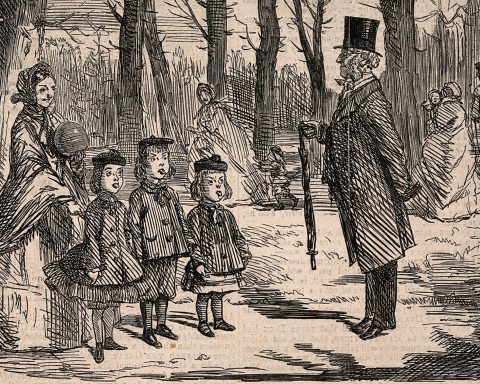
The idea of history repeating is historically recurrent.1 It goes back to the ancients, so there must be something in it. A case in point is the UK’s recent infected blood scandal. After much campaigning over many years an inquiry has now been held and its final report published.2 The Prime Minister apologises and so does the head of the NHS.3,4 Meanwhile, the media coverage highlights not just the scale of harm to the direct victims but also the fate of those who tried valiantly to bring it to our attention earlier.5 The stories about the travails of these whistleblowers leads to further eddies of activity in the political and media spheres.
The General Medical Council (GMC) acknowledges in a message to doctors that it realises referrals to it have been used as a weapon against whistleblowers and asserts such things will not be repeated either.6 Controversy still swirls around the GMC in relation to the case of Sarah Benn, who has been suspended on account of recurrent (illegal) peaceful protests in support of the climate crisis.7 Notwithstanding its professed support for moves to a low carbon future, the concern is that the GMC acts as a blind multiplier of whatever the legal system determines.
Confidence in the British legal system and its regulation is currently being lowered by the ongoing revelations associated with the Post Office inquiry.8 Presumably this does not help make the GMC’s position any easier: is she troublemaker or whistleblower? Meanwhile, the NHS board has considered a public board paper about its productivity.9 This paper is quite revealing in that it devotes two paragraphs to overall NHS productivity followed by nine devoted to acute hospital productivity. Indeed, there is no attempt to consider primary care productivity at all, despite its own data showing primary care provided around 29.9 million NHS appointments in March 2024 alone.10
GP practice income continues to fall, however.11 Ironically, this means primary care is becoming more productive still, given that its appointment data are not following the funding down. So why is this not being considered by our NHS board?
Perhaps the answer is that it simply does not occur to them that primary care matters when return on total investment in the NHS is being considered? Its share of the overall budget was perhaps never at a point where it could matter enough to be a concern, even in the good times. After all, even a 10% improvement in primary care productivity cannot offset even a 1% fall in acute hospital productivity given the disparity in funding.
The Health Foundation says its research is clear: the public wants primary and community care to be a higher priority for NHS resources than hospital services. While it would not accept a decline in access to hospital care for those who need it, there was support for a steady rebalancing of funding over time.12
But the endemic problem is how the cash in any system flows through. I think of this as the capital advantage: those closest to the source always do best. It is why ‘poor banker’ is an oxymoron. Ask yourself if you’ve ever been in a capital city and found it poorer than other cities in the same country? Here is another historical recurrence extending back to the ancients — Athens and Rome hardly neglected themselves back in the day.
Let’s just say primary care does not hold the capital advantage in the NHS — the hospitals do. This July brings renewed government to the UK. Same old, same old? Or something new?
References
1. Trompf GW. The idea of historical recurrence in Western thought. California, LA: University of California Press, 1974.
2. Infected Blood Inquiry. The inquiry report. 2024. https://www.infectedbloodinquiry.org.uk/reports/inquiry-report (accessed 10 Jun 2024).
3. Prime Minister’s Office, 10 Downing Street, Sunak R. PM statement on the Infected Blood Inquiry: 20 May 2024. London: HM Government, 2024.
4. NHS England (NHSE). Publication of the infected blood inquiry final report. London: NHSE, 2024.
5. Eastman J, Rayner G. NHS bosses destroy careers of whistleblowers who stand up to protect patients’ lives. Telegraph 2024; 15 May: https://www.telegraph.co.uk/news/2024/05/15/nhs-bosses-destroy-careers-whistleblowers-avoidable-deaths (accessed 10 Jun 2024).
6. MacEwen C. News for doctors. https://gmc-news.org/cr/AQja-wEQ_NT0Bhi15a-fAb9cyeyEZEJGb43et1IXKSNgZQFSoE5xS9YEoEoPpmMy (accessed 10 Jun 2024).
7. British Medical Association (BMA). ‘Worrying’ message being sent to other doctors following Dr Benn ruling, warns BMA. London: BMA, 2024.
8. Hyde J. Horizon scandal: the SRA’s ‘wait and see’ approach is growing untenable. Law Society Gazette 2024; 10 Jan: https://www.lawgazette.co.uk/commentary-and-opinion/horizon-scandal-the-sras-wait-and-see-approach-is-growing-untenable/5118369.article (accessed 10 Jun 2024).
9. Kelly J. NHS productivity. 2024. https://www.england.nhs.uk/long-read/nhs-productivity (accessed 10 Jun 2024).
10. NHSE. Appointments in general practice, March 2024. London: NHSE, 2024.
11. Colivicchi A. GP contractor income has dropped by a fifth in a year, BMA finds. Pulse 2024; 10 Jan: https://www.pulsetoday.co.uk/news/practice-personal-finance/gp-contractor-income-has-dropped-by-a-fifth-in-a-year-bma-finds (accessed 10 Jun 2024).
12. Cameron G, Buzelli L, Duxburry K, et al. The public’s views on the future of the NHS in England: findings from deliberative research and polling with the public and what it means for the next government. London: The Health Foundation, 2024.
Featured photo by Elena Mozhvilo on Unsplash.








